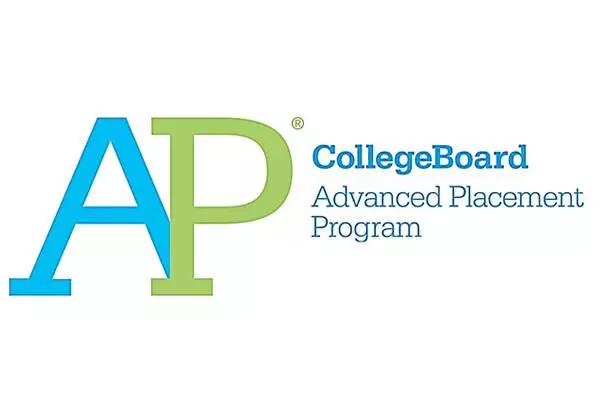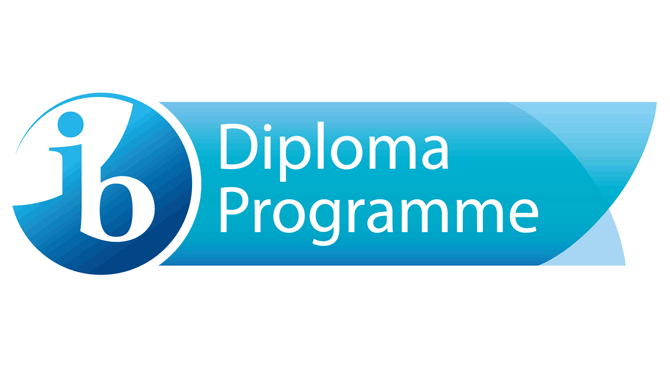AP vs IB: The majority of high school students preparing for college know that taking rigorous courses is one piece of the puzzle when it comes to making yourself a competitive college applicant. Data published in 2024 by NACAC confirmed that high school academic performance (aka, your grades) is the most important aspect of the college admissions process. Going even further, 73% of colleges stated that student’s grades in college prep courses (such as AP and IB courses, for example) were “considerably important”.
But let’s take a step back here. What exactly does it mean to take “rigorous courses”?
Most high schools offer several different levels of courses that students can take, which vary in terms of difficulty. Beyond your normal classes, lots of schools also offer Honors classes (one step up from your normal). One step up from Honors classes is taking you into a whole new ballgame.
Enter the room, AP and IB classes.
At some point throughout your high school years, it’s likely that you’ve heard these terms, “AP” and “IB”, thrown around or mentioned by your teachers, school counselors, or your peers.
Maybe you know a little bit about them, maybe you know nothing about them.
To give you the extremely shortened version, AP and IB courses are the most rigorous level of courses that you can take as a high school student. These programs (and their respective courses) are both viewed highly by college admissions officers, primarily because they offer students the opportunity to earn college credits by showing their proficiency in a course that is considered to be college level.
Regardless of where you stand on this spectrum in terms of what you know (or don’t know), in this post, I am going to outline everything that you need to know about both types of classes, AP (Advanced Placement) and IB (International Baccalaureate). This guide will include important information such as the basics of each type of course, key differences, which program is right for you, and so much more.

Advanced Placement classes are courses that you can take as a high school student that can potentially award you credits for college based on your score on the end-of-year AP exams.
AP classes are administered and managed by the College Board (the same organization that administers the SAT), and are offered at roughly 86% of high schools across the United States, according to a post by College Transitions.
The College Board currently offers 38 AP classes. However, most schools offer approximately half that number or less.
AP classes are offered for a wide variety of subjects, ranging from languages to history to art to the various sciences. A handful of the most popular AP exams taken by students include US Government & Politics, Calculus AB, English Language and Composition, and US History.

According to the College Board, a few of the main benefits of enrolling in AP courses (and taking their respective exams) include:
In addition to these benefits named by the College Board, one of the most obvious benefits that students derive from taking AP classes and exams is the fact that there is the possibility to earn college credit for the course you have taken the exam for, depending on the score you get.
Earning college credit for a course means that, when you get onto campus as a college student, you can essentially bypass the introductory level course for that subject. This can be helpful if you are worried about graduating on time, or if you want to be able to jump into your major-specific courses as early as possible.
While there is no age or year in high school requirement that students must meet in order to be able to take AP classes or exams, AP courses usually become a recommended component of your course load as you become an upperclassman (junior or senior).
In most schools, in order to take any given AP class, the decision needs to be approved by your school counselor, or by a teacher in the subject who can vouch for your potential to succeed in this type of advanced course.
However, there are instances in which 10th-grade students may be recommended for (and able to take) AP classes.

Taking the AP exams is necessary if you want to be able to potentially earn college credit for that course. While you are not required to take the AP exam for a course that you’ve taken, I personally think that there is no reason to not take the exam after you’ve put in all the effort with the course.
Conversely, students also have the opportunity to take AP exams in subjects even if they have not taken the corresponding AP course.
AP exams are scored on a scale of 1 - 5, where 5 is the best possible score a student can earn. The majority of schools will accept scores of a 3 or higher in some capacity, however, the more competitive and selective a school is, the higher the minimum accepted score will be.
For example, Harvard University requires students to have a score of 5 on an AP exam in order to be able to earn college credit. If you are curious to find out what scores are accepted at the schools you are interested in or applying to, click here to learn more.
AP exams are taken every year in May. In a normal year, these exams are administered either at your high school or at an exam center. However, due to COVID, this year’s exams are being administered virtually, so students are taking them at home.
To learn more about the structure of AP exams, and when and how you can sign up for them, head over to the College Board’s AP Step by Step page.
In terms of cost, as of March 2020, the cost of each AP exam was $94.

Between AP and IB classes, the IB curriculum is generally the lesser-known of the two. This makes perfect sense, considering less than 1,000 high schools across the US offer the IB diploma. However, this doesn’t mean that colleges and universities regard IB classes as being less rigorous or impressive.
When it comes to the format of IB classes and curriculum, there are a few key features that differentiate IB from AP. To start, IB is a program that is offered for students in elementary, middle, and high school. The IB Diploma Program is the specific program that is open to high school students.
The IB Diploma Program curriculum, according to their website, is made up of the DP core and six subject groups.
The DP core “aims to broaden students’ educational experience and challenge them to apply their knowledge and skills”. The three components of the DP core include:
The six subject groups offered through the DP curriculum are studies in language and literature, language acquisition, individuals and societies, sciences, mathematics, and the arts. Click here to dive further into the courses that are offered in each of these six subject groups.
There are two different difficulty levels of IB classes in the DP curriculum: the HL (higher level) and SL (standard level). Each student takes at least three, but no more than four, HL courses.
According to the IB website, a few of the main benefits that students will get out of taking part in the IB Diploma Program are:
"IB students develop strong academic, social, and emotional characteristics. They are also likely to perform well academically – often better than students on other curricula."
Similar to the benefits of taking AP classes and doing well on those exams, obtaining an IB diploma (with a solid to high score) objectively shows college admissions officers that you are academically motivated to succeed.
Another similar benefit is that your IB diploma can, depending on the school, give you college credit, which allows you to skip certain classes and go directly for the higher-level ones.
One IB-specific benefit is the fact that a significantly smaller number of students enroll in the IBDP as compared to AP courses. Therefore, this is not only a unique achievement to submit on your college applications, but it is also among one of the most esteemed.
Lastly, if you think or know that you want to attend school abroad, then you can rest easy knowing that the IB Diploma is an internationally recognized achievement.

The Diploma Program uses what they call “internal” and “external” assessments.
The internal assessments are subjective in nature and are often composed of things such as lab work in science fields, artistic performances, and oral work in languages.
By contrast, the external assessments are objective and include a variety of different types of questions to test students' knowledge across the various areas.
The scoring for the DP assessment is on a 7 to 1 range, where 7 is the highest possible score that a student can receive in any given course. Students are only awarded the IB Diploma if they exceed a combined 24 points across all of the exams, and when they have proven successful in completing requirements for all three of the DP core components.
Another thing to note is that students cannot take IB exams without having taken the corresponding course.
As of March 2020, the fee per IB exam was $119.
Key Diff #1: AP is only within the US and Canada, whereas IB is offered at schools worldwide (although a lot fewer schools in the US).
What this means: The structure and content of the IB classes have much more of an international focus than the AP courses. If you are considering going to school in a country other than the US, going the IB Diploma Program route might be a better option for you. Unfortunately, because IB is offered at much fewer schools in the US, you may be interested in it but not be able to enroll if your school doesn’t offer it.
Key Diff #2: Theoretically, you can take AP classes in any year that you’re in high school. By contrast, you need to be between the ages of 16 and 19 in order to enroll in the IB Diploma Program.
Key Diff #3: When it comes to AP courses, students can enroll in each one individually and are one year long. By contrast, with IB, students have two options: they can either enroll in individual classes, or they can opt for the full Diploma Program. Additionally, the IB Diploma Program is a two-year-long program, which takes place during your junior and senior years of high school.
What this means: The IB Diploma Program offers more flexibility in terms of having both options. However, if you do opt-in for the Diploma Program, it is clearly a longer time commitment.
Key Diff #4: Your scores for AP exams are completely separate from one another, meaning your success on one doesn’t have any impact on any of the other exams you take. Conversely, if you do not obtain enough combined points on all of your IB exams, you cannot earn your IB Diploma.
What this means: With AP classes, you can choose to take ones that you feel you will excel the most in. In comparison, when you enroll in the Diploma Program, you must take exams for all of the subjects. Also, the structure of the IB Program in terms of the scoring, in my opinion, makes it slightly more stressful than the AP exams.
Key Diff #5:The IB exams are more expensive than the AP exams.
What this means: If cost is one of those important considerations for you (as it is for many students) you will want to look into the cost breakdown for both exams. There are fee waivers available for both, so this just takes some research to see if and what you qualify for.
If your school offers both, you can definitely take a mix. However, going back to thinking about the schools you intend or hope to apply to, their competitiveness levels, and which path/type of course you feel may suit you better, I personally think that choosing one route and sticking with it is the better plan of action.
The answer to this question depends on quite a few things. Some of those things include where you are thinking about going to college, how selective the schools are that you are considering, and what your preferences are in terms of time commitment, level of pressure, and subjects of interest.
Generally, both routes are considered to be rigorous in the eyes of colleges and universities. If your school only offers one or the other, then luckily you don’t need to make this decision! If your school does offer both though, the IB Diploma Program is considered to be the better route, because it is a diploma program rather than just individual classes.
If possible, my suggestion is to do some research on the schools you are interested in before making your ultimate decision. Some schools may show a preference towards accepting more AP credits than IB, or vice versa. To find out more about the credit policy for a school for either AP or IB, you can easily do a Google search such as “X College/University IB/AP credit policy”.
If your school does not offer either AP or IB courses, you can still be a competitive applicant in the eyes of colleges and universities as long as you take the most rigorous courses that are available to you.
Additionally, if this is the case for you, you will want to consider the other pieces of your application (extracurriculars, essays, etc) and do everything you can to make those portions of your application as strong and impressive as possible.
So, this post ended up being very, very long (woops). I hope that, if you’ve made it this far, I hope it has been helpful in terms of explaining both AP and IB courses, their offerings, their differences, and more.
Now, I would be remiss to not include some additional resources at the end, if you want to learn more about either or both of these options! Happy reading!
AP
IB